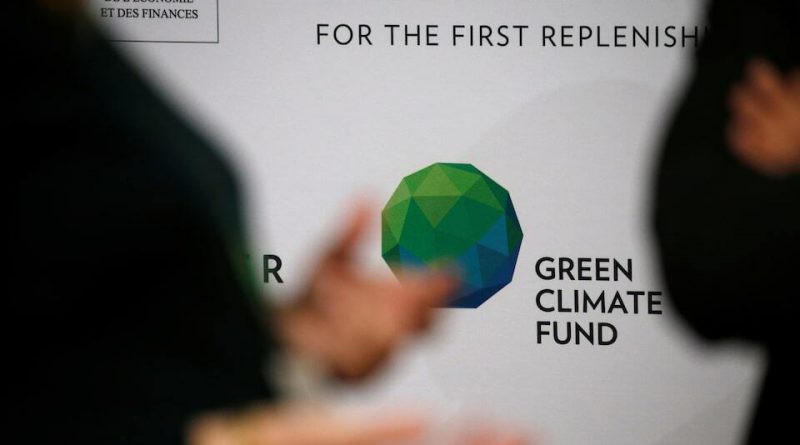Global Climate Fund Commits Record Support for Jordan’s $6 Billion Water Transformation Project
London – In a landmark step for sustainable development, the world’s largest multilateral climate fund has announced its biggest-ever financial commitment to support Jordan’s ambitious $6 billion water desalination and conveyance project.
The initiative, known as the Aqaba-Amman Water Desalination and Conveyance Project, aims to provide clean water to millions of people while strengthening the country’s resilience to the growing impacts of climate change.
The Green Climate Fund (GCF) described the project as a transformative investment that reflects the global community’s confidence in Jordan’s vision for environmental sustainability.
The fund approved a combined grant and concessional loan of $295 million, designed to attract further financing from international partners such as the International Finance Corporation and leading private lenders.
This strategic partnership is expected to unlock additional billions in investment and make the project a model for sustainable water solutions in arid regions.
Jordan faces one of the most severe water shortages in the world, ranking second globally in terms of water scarcity. The desalination initiative will help the country produce and deliver around 300 million cubic meters of water annually to most regions of the kingdom.
Experts believe this will significantly ease the burden on existing groundwater resources, which have been under increasing pressure due to population growth, industrial demand, and rising temperatures.
The project has been described by Jordanian officials as a cornerstone of the nation’s long-term water security plan. The Minister of Water and Irrigation, Raed Abu Soud, emphasized that the project is not only about meeting immediate water needs but also about ensuring sustainable access for future generations.
By integrating modern desalination technology with energy-efficient systems, the project aims to reduce costs and environmental impact while enhancing supply reliability.
The U.S. government has pledged strong support, committing $300 million in grants and $1 billion in loans, reinforcing the strategic partnership between the two nations.
Several other countries in the region are also expected to contribute, reflecting widespread recognition of Jordan’s importance as a stable and cooperative regional ally.
These investments will play a key role in promoting regional sustainability, economic growth, and long-term climate resilience.
A senior official involved in the project explained that the GCF’s financial contribution would make water production more affordable by reducing costs by about 10 cents per liter, saving the Jordanian government approximately $1 billion over the project’s lifetime.
This cost efficiency is expected to attract additional private sector participation, particularly from investors focused on sustainable infrastructure and green innovation.
The project will be led by a consortium that includes global infrastructure and environmental firms Meridiam and SUEZ. It will stand as one of the largest desalination projects in the world, setting new standards in renewable-powered water infrastructure.
By integrating advanced desalination methods with climate-resilient technologies, the initiative will serve nearly half of Jordan’s population, transforming both urban and rural water access.
Beyond providing immediate relief, the initiative aligns with global efforts to strengthen resilience against climate change. Projections indicate that Jordan could face a 4°C temperature rise and a 21% reduction in rainfall by the end of the century.
These changes threaten to intensify droughts and reduce groundwater availability. The new project directly addresses these challenges by creating a sustainable and secure water source that can withstand future environmental stresses.
The GCF’s decision to back Jordan’s project also comes ahead of the COP30 climate summit in Brazil, where global leaders will discuss ways to accelerate financing for climate adaptation and resilience projects.
The fund’s leadership emphasized that this milestone investment reflects the urgency of addressing global water scarcity and the need for coordinated international action.
This project represents not just a national achievement for Jordan but also a global example of innovation, cooperation, and forward-thinking climate action.
It embodies the shared goal of building sustainable futures through partnerships that prioritize both people and the planet.
As the initiative moves forward, it stands as a powerful reminder that with collaboration and commitment, even the most water-stressed regions can achieve resilience and hope.


